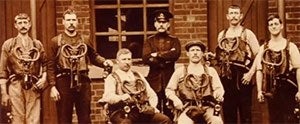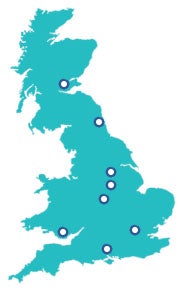MRS Training & Rescue are leading first aid training and assessment providers and are approved by an awarding body.
Our accredited first aid courses are designed to provide skills, knowledge and confidence needed to deliver effective first aid in emergency situations.
Over 100 of our instructors have the qualifications and experience to teach anyone the first aid they require to be compliant and effective.
What is the right first aid training course for me?
We are approved to deliver first aid courses that comply with the First Aid Regulations Act 1981. Upon successful completion of our courses, participants will receive a certification verifying their compliance with this regulation.
We offer a variety of first aid courses, including mental health first aid. If you need help in deciding which one is the right course for you and your business – don’t hesitate to contact us.
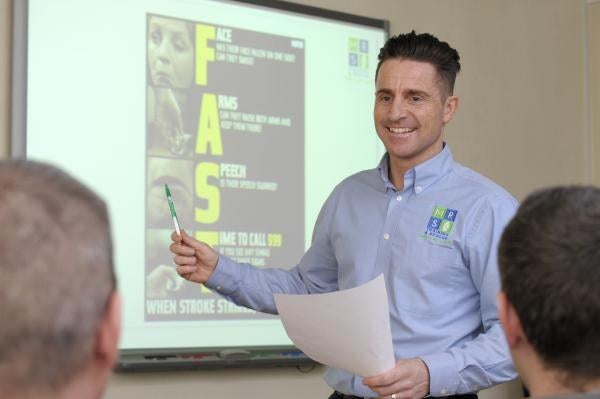
First Aid at Work
This 3 day First Aid at Work course is our most popular and is the course most first aiders need to complete to comply with health and safety regulations.
This course covers all the comprehensive practical skills a person requires to become a confident first aider at work – which includes how to provide appropriate care and knowing the action to take in an emergency. Candidates will also learn how to demonstrate basic life saving techniques and diagnose and deal with injuries and illnesses in the workplace.
Attendees will be continually assessed throughout the duration of the course and will be required to complete a short written assessment. Those who successfully complete this course will receive a QualSafe First Aid at Work certificate, which is valid for 3 years.
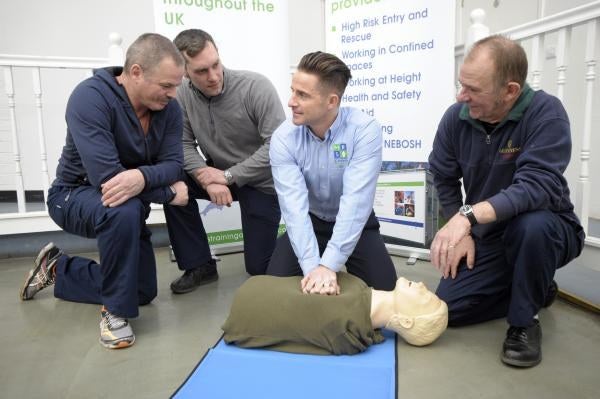
First Aid at Work Requalification
This First Aid at Work requalification course is for those who need to renew their expiring or expired First Aid at Work certification.
This 2 day course will ‘refresh’ the practical skills and knowledge of first aiders and will ensure they are up-to-date with any changes in standards or regulations. This course places emphasis on making sure first aiders can continue to be effective in delivering practical skills (such as CPR and dealing with wounds).
The Health and Safety Executive (HSE) recommends that those who have an expiring first aid certificate complete this course within a month of a certificate expiring.
Those who successfully complete this course will receive a QualSafe First Aid at Work certificate, which is valid for 3 years
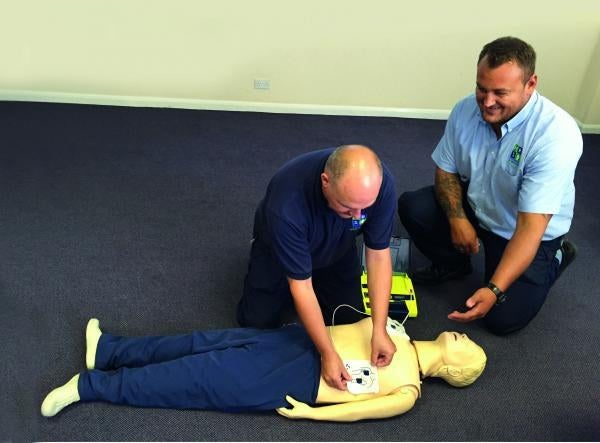
Emergency First Aid at Work
This 1 day Emergency First Aid at Work course is for those who work in low hazard environments such as offices, shops and libraries – or for those who have identified the requirement for an emergency first aider in their risk assessment.
On this course, candidates will learn basic life saving first aid and workplace health and safety regulations. Attendees will learn and be able to demonstrate how to take action in emergency situations, basic life saving techniques and how to deal with minor injuries and illnesses in the workplace.
Those who successfully complete this course will receive an Emergency First Aid at Work certificate from QualSafe, which is valid for 3 years

Understanding Mental Health First Aid
Our Understanding Mental Health First Aid (MHFA) in the Workplace is available as both a Level 2 and Level 3 QualSafe certification.
These training courses help delegates to develop a greater understanding of common mental health conditions. Enrolees learn how best to support someone experiencing mental health challenges, as well as how to guide them to professional help.
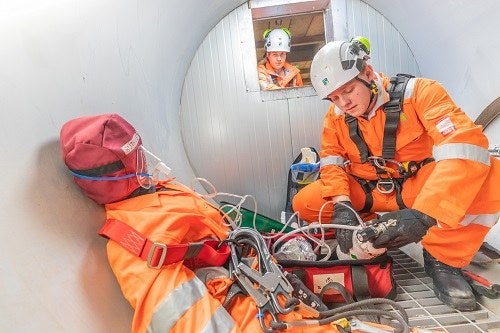
GWO First Aid Courses
GWO First Aid courses are for those who work in the wind turbine industry. Wind turbine engineers often have to work in remote places or at considerable heights. This means, it can take a long time for emergency services to arrive – therefore, first aid training is essential.
MRS Training & Rescue is an approved GLOBAL WIND ORGANISATION (GWO) TRAINING PROVIDER. GWO is a non-profit body founded by leading wind turbine manufacturers and operators, and although not mandatory – this training is often sought by employers in the wind turbine industry.
Our GWO ENHANCED FIRST AID (EFA) COURSE is for those who require a higher level of first aid life saving and rescue skills. It equips trainees to assist in remote areas, using advanced emergency equipment and teleconsultation until the emergency services arrive.
Frequently asked questions
Are courses accredited by industry bodies?
MRS Training & Rescue are an awarding body approved assessment provider, and as such, we are able to deliver, assess and certificate first aid courses which comply with the First Aid Regulations Act 1981.
Our First Aid at Work and Emergency First Aid courses are accredited by QualSafe and our Advanced First Aid course is accredited by MP Awards.
We are also Global Wind Organisation (GWO) approved training providers – which means we are approved to deliver first aid courses for the wind turbine industry and can award GWO recognised certification.
What skills will I learn?
It is important for delegates not only to grasp the theoretical aspects of first aid training but also to undergo practical assessments to ensure competence when applying these skills in real-life situations.
Our practical courses equip you with the skills, knowledge, and confidence to effectively apply what you've learned and been assessed on in real emergency situations. Therefore, if an emergency does arise, you'll be fully prepared to handle it.
What is first aid?
First aid is the act of providing immediate assistance to individuals who are sick or injured until professional medical assistance can be obtained. The goals of first aid are to:
- Preserve life
- Prevent deterioration
- Promote recovery
What is a first aider, and what are their responsibilities?
A first aider is an individual appointed by an employer to administer first aid, having received training that meets the standards set by the Health and Safety Executive (HSE).
A first aider has several responsibilities:
- Assess the scene
- Obtain help
- Treat the patient
- Minimise the risk of infection
- Manage post incident / emergency
Why do I need first aid training?
Up to 150,000 people in the UK die each year in situations where first aid could have made a difference.
Companies with 25 – 50 employees are required by the Health and Safety Executive to have at least one person with the ‘Emergency First Aid at Work’ qualification. In workplaces with a larger number of employees, it's advisable to have multiple fully trained first aiders. This helps mitigate the risk of serious consequences resulting from a shortage of staff trained in first aid.
Employers are responsible for ensuring that sufficient equipment, personnel, and facilities are available to promptly attend to injured staff members. Regular workplace risk assessments should be conducted to identify potential hazards and determine appropriate measures to address them.
As accidents and illness can happen at any time, it’s important that first aid is always readily available for workers. Employers have a legal responsibility towards their employees, and they must appoint a person to take charge in any incident if this is not themselves.








